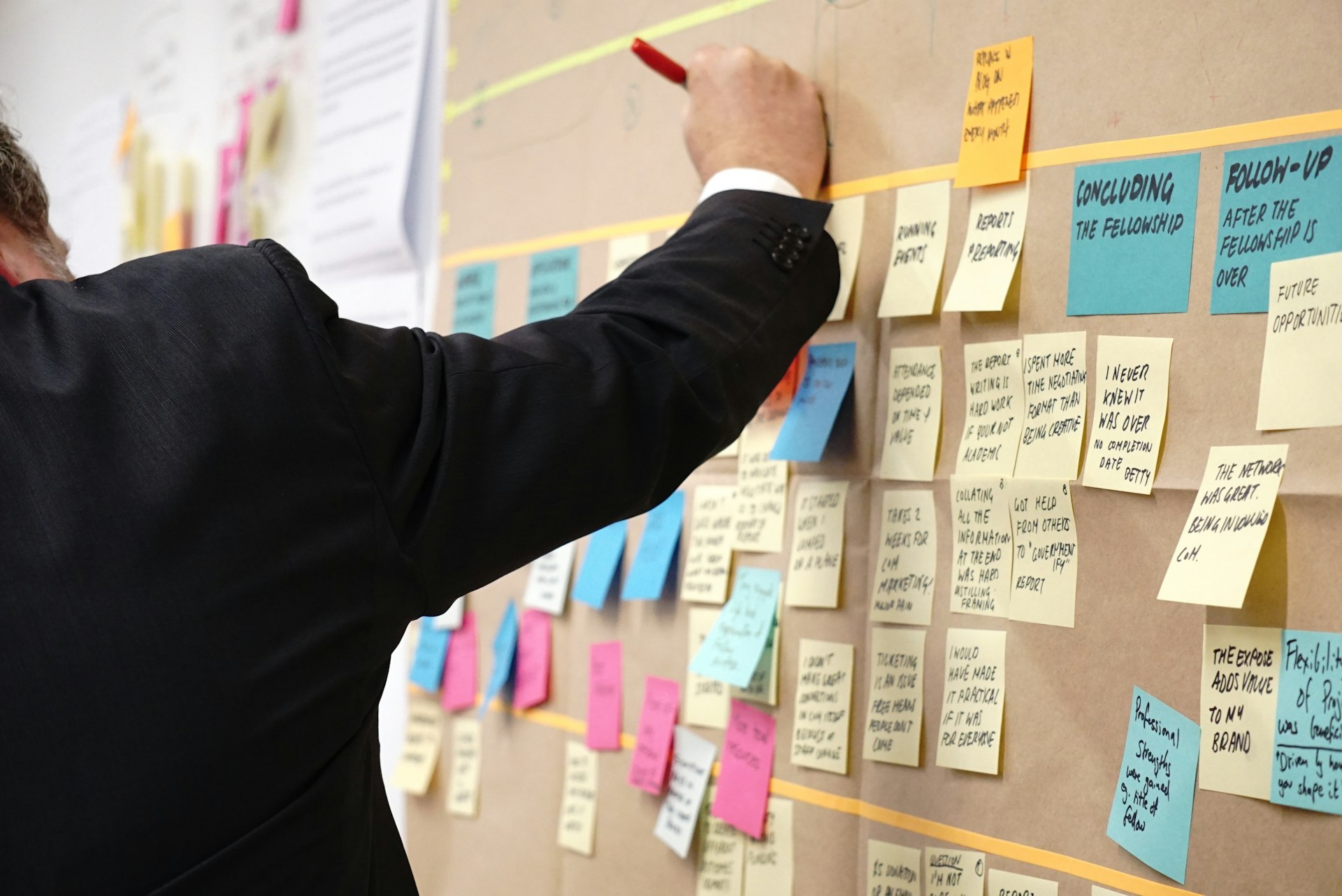Unlocking New Career Pathways: How the Metaverse Is Shaping the Future of Work

Photo by BoliviaInteligente on Unsplash
The Evolving Landscape of Careers in the Metaverse
The metaverse-the immersive, interconnected virtual universe blending extended reality (XR), gaming, social platforms, and digital commerce-is redefining the world of work. As businesses, educators, and creators embrace this new frontier, a wave of career opportunities is emerging, demanding both creative and technical expertise. The future of work in the metaverse is far from science fiction; it’s already taking shape across industries, with projections indicating the metaverse could add $1.5 trillion to the global economy by 2030 [1] .
Emerging Career Paths: What Roles Will Dominate?
Several new and evolving roles are gaining momentum as organizations invest in building, securing, and enriching immersive digital environments. Here are some of the most significant career opportunities projected for the near future:
1. XR Developer (VR/AR/MR)
Extended reality (XR) developers are the architects behind virtual and augmented worlds. They build immersive learning modules, games, and enterprise applications that power the metaverse. Key skills include proficiency in game engines (like Unity and Unreal), 3D modeling, and a strong understanding of user interactions in 3D spaces [2] .
How to Get Started: Many universities and online platforms offer courses in VR/AR development. Aspiring XR developers should focus on mastering programming languages like C# and C++, and participate in hackathons or open-source projects to build portfolios.
Example: A 3D developer might create a training simulator for medical students or design a virtual retail store, allowing users to interact with products in real time.
2. 3D Environment and Avatar Designer
The demand for artists who can design lifelike avatars and engaging digital spaces is skyrocketing. These designers blend artistic creativity with technical skills to create visually appealing, interactive environments and customizable virtual identities [3] . As companies push for sustainability, digital fashion and avatar clothing design also offer environmentally friendly alternatives to physical goods.
Actionable Steps: Graphic design, 3D modeling, and animation courses are valuable. Building a strong digital portfolio and staying current with virtual fashion trends can help candidates stand out.

Photo by Kelly Sikkema on Unsplash
Potential Challenges: Staying ahead of rapidly changing technology and fashion preferences may require continuous learning and adaptation.
3. Metaverse Event Director
Virtual events-from concerts to conferences-need skilled planners. Metaverse Event Directors manage logistics, curate experiences, and ensure seamless engagement in virtual spaces. This role combines creative vision with technological fluency.
How to Access Opportunities: Event planners can expand their skills by learning about VR platforms, digital ticketing, and immersive event tools. Volunteering to help with virtual events or collaborating with experienced XR professionals can be a practical entry point.
Alternative Pathways: Traditional event managers can pivot by upskilling in XR software and networking within digital communities.
4. Metaverse Security Analyst
As virtual economies and personal data proliferate, cybersecurity specialists are essential to protect privacy and digital assets. Security analysts defend immersive platforms from threats, manage identity protection, and enforce safe user interactions [4] .
Implementation Guidance: IT professionals can transition into metaverse security by gaining expertise in blockchain technology, identity authentication, and immersive platform vulnerabilities. Certifications in cybersecurity are a valuable asset.
Example: A security analyst may be responsible for protecting in-game assets or ensuring user data remains secure during virtual collaboration sessions.
5. Digital Asset Creator and Blockchain Engineer
Creators of virtual goods, NFTs, and blockchain-based assets play a pivotal role in the metaverse economy. Blockchain engineers build secure systems for digital transactions and asset management, while digital artists design items for avatars and virtual worlds [4] .
Step-by-Step Entry: Artists should learn about 3D asset creation and NFT platforms. Engineers should develop skills in smart contract programming and blockchain protocols.
Example: An engineer might develop a decentralized marketplace for virtual real estate, while an artist creates exclusive digital wearables for avatars.
How Companies Are Using the Metaverse for Work and Recruitment
Major corporations are already leveraging the metaverse for improved collaboration, onboarding, and training. For instance, Accenture’s “Nth floor” virtual campus lets employees connect, learn, and collaborate in a digital environment, enhancing engagement and accessibility [1] .
Recruitment is also evolving-virtual interviews allow candidates to interact with teams, experience realistic job previews, and demonstrate skills in simulated scenarios. This global reach levels the playing field for job seekers worldwide, though access to technology remains a critical factor [5] .
Practical Steps to Access These Opportunities
- To explore metaverse careers, consider joining professional networks like LinkedIn and searching for roles such as “XR Developer,” “Virtual Event Manager,” or “3D Environment Designer.”
- Participate in online courses from established platforms. For example, search for “metaverse careers” or “virtual reality development” on reputable online education sites.
- Build a portfolio of immersive projects and share them on creative communities or metaverse platforms.
- Stay updated by following industry news and joining forums dedicated to XR, blockchain, and metaverse trends.
- If you’re interested in virtual event management, reach out to companies experimenting with digital events or volunteer for online conferences to gain experience.
Skills Needed for the Metaverse Job Market
Most roles in the metaverse require a blend of technical and soft skills. Key competencies include:
- Proficiency in coding languages (C#, C++, Python, Solidity)
- 3D modeling and animation
- Understanding of blockchain and cybersecurity principles
- User experience (UX) and user interface (UI) design
- Strong communication and creative problem-solving
Many of these skills are extensions of traditional IT, design, and creative roles, so transitioning into metaverse careers is accessible for those already in related fields [2] .
Challenges and Solutions in the Metaverse Job Market
Access and Inclusion: Not everyone has access to the hardware or high-speed internet needed for immersive environments. Organizations and educators are addressing these gaps through scholarships, community access programs, and cloud-based XR solutions. Consider searching for local technology community initiatives or speaking with your academic institution’s career services about available resources.
Continuous Learning: The rapid evolution of XR and blockchain technology means upskilling is a constant requirement. Professionals are encouraged to attend webinars, enroll in new courses, and participate in online communities to stay current.
Security and Privacy: As more personal and financial data moves into digital spaces, privacy risks increase. Employers and job seekers should prioritize platforms with strong security reputations and consider earning certifications in digital safety.
Alternative Approaches and Future Outlook
While some roles are entirely new, others are evolutions of traditional jobs. For example, educators are now running virtual classrooms, therapists offer counseling via avatars, and marketers develop brand experiences in immersive worlds. If you’re interested in these pathways, search for organizations piloting metaverse initiatives in your field, or connect with professional associations focused on digital transformation.
The metaverse is also expanding opportunities for remote work, global collaboration, and creative entrepreneurship. Many professionals are building side businesses designing virtual goods, hosting events, or offering freelance XR development services. To get started, join open metaverse platforms, showcase your work, and network with others building in this space.
Key Takeaways and Steps Forward
The metaverse is set to transform the employment landscape, creating jobs that blend technology, creativity, and digital interaction. Whether you’re a developer, designer, educator, or entrepreneur, there are actionable steps you can take to prepare for these opportunities:
- Identify transferable skills from your current profession and seek training in immersive technologies.
- Build a digital presence by sharing projects and networking with metaverse professionals.
- Stay informed about emerging trends, new platforms, and industry best practices by participating in online events and following reputable news sources.
- For those seeking direct guidance, consult career counselors at your academic institution or contact industry-specific professional associations for tailored advice.
The future of careers in the metaverse is dynamic, inclusive, and brimming with potential for those ready to innovate and adapt.
References
- [1] Oleeo (2025). 7 Recruitment Trends You Shouldn’t Ignore in 2025.
- [2] Ascend Education (2025). Metaverse Careers in 2025: What to Know.
- [3] Immersive Learning News (2025). 7 Careers That Will Exist In The Metaverse By 2030.
- [4] Coursera (2025). A Guide to Metaverse Jobs.
- [5] Pixel Solutionz (2025). Metaverse Trends 2025 | Explore the Future of Virtual Worlds.



